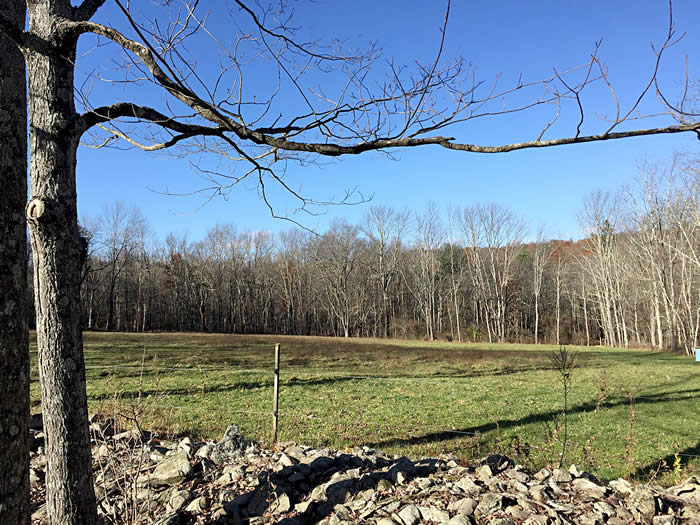Timber Hill Farm
Editor's note: Timber Hill Farm in Paradise Township is private and not open for hiking. This article features its natural wonders as well as the importance of its conservation easement.
Looking forward on Timber Hill Farm
By Carol Hillestad
Bumping up the dirt and gravel road to Timber Hill Farm in Paradise Township, you might feel the ripple of a time warp.
A dappled brown-and-white horse grazes on the long slope that drops to the waters of Forest Hills Run. Old stone walls line the road. The lowing of cows and a soft wind among pine trees are the only sounds. The light is golden. All is still.
But it would be a mistake to think that this 100-year-old farm got stuck in the 19th or even the 20th century. The second-generation owner, Edie Stevens, takes a very modern view of protecting the past.
“I wanted to care for this land, and pass it on to my son and grandsons and future generations. So I protected it with a conservation easement back in 1999,” she says. “My mother and father believed that taking care of the natural world is what sensible people do. So this is for them, too.”
People throughout Monroe County who also believe in “taking care of the natural world” have protected their land this way. Some landowners have large farms they want to see preserved. Others have land along a stream they want to protect. Still others have forested land they want to manage for timber, or animal and bird habitat, or to provide a family retreat.
A conservation easement can work for all of them. With a conservation easement, a landowner gives or sells development rights to a land trust. They still own the land and can pass it on to heirs. (Whether to sell or donate the development rights depends on each owner’s circumstances, and often provides tax benefits.) The land trust’s job is to protect the land in perpetuity.
For Edie Stevens, taking care of the natural world also means not wasting resources. Chickens, some beef cattle, and a neighbor’s horse are among the livestock. Pastures are rotated to keep the land fertile, prevent over-grazing, and avoid erosion. Electric fences keep the cattle where they belong and out of the creek, preventing pollution. Timber is harvested for firewood. Mushrooms are grown in a cellar, and composting is a way of life. Manure and animal bedding become top dressing for fields and gardens. A test to melt driveway ice with a composted manure heater is underway.
Even the energy of the sun and earth is harvested. An array of solar panels keeps the lights on — and powers the geothermal heating and air conditioning that make the old stone house comfortable year-round.
Pine and spruce plantings on the ridge and down the steep slopes promote groundwater recharge and prevent erosion. Edie’s father planted this stand of trees, with its view toward distant hills. The thought that her son, grandsons, and children not yet born will share all this one day gives her the pleasure of a very long view indeed.
For information on conservation easements, contact Pocono Heritage Land Trust via phlt.org or call 570 424-1514. |
Carol Hillestad writes for Brodhead Watershed Association’s Get Outdoors Poconos, a grant-funded program.
Photos by Carol Hillestad and Edie Stevens
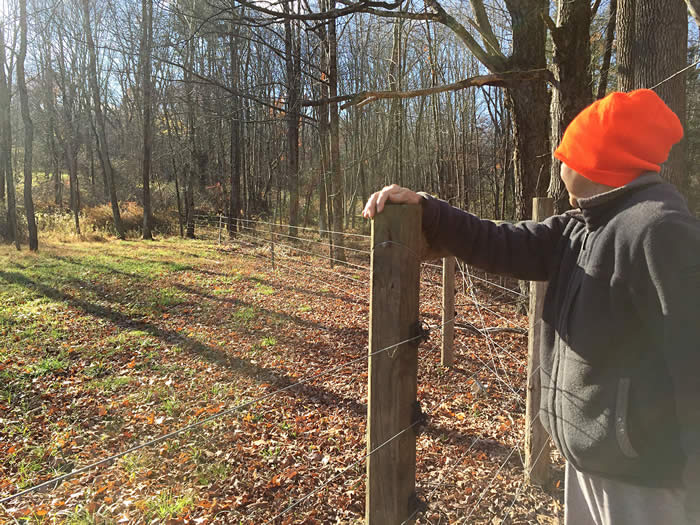 |
|
| Timber Hill Farm owner Edie Stevens uses electric fences to keep the cattle where they belong and out of the creek, preventing pollution. |
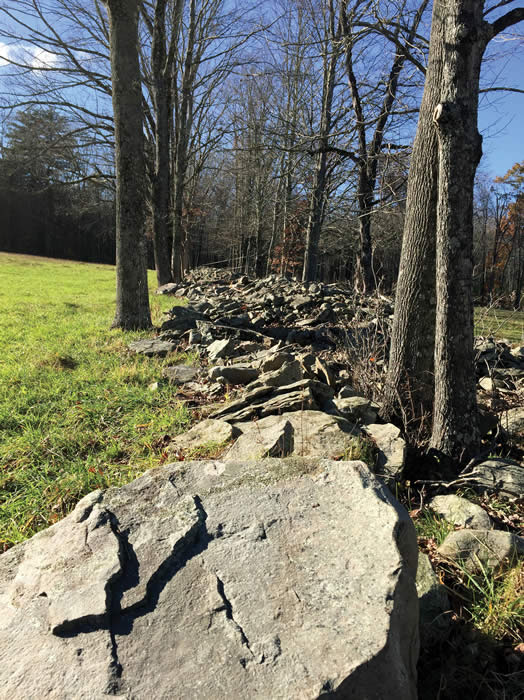 |
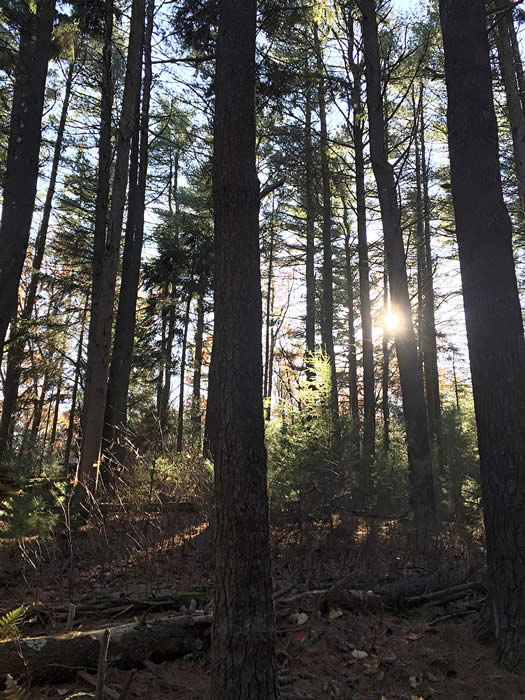 |
Trees and rock walls keep erosion at bay on the farm's slopes, while forest sections are carefully harvested for firewood. |
|
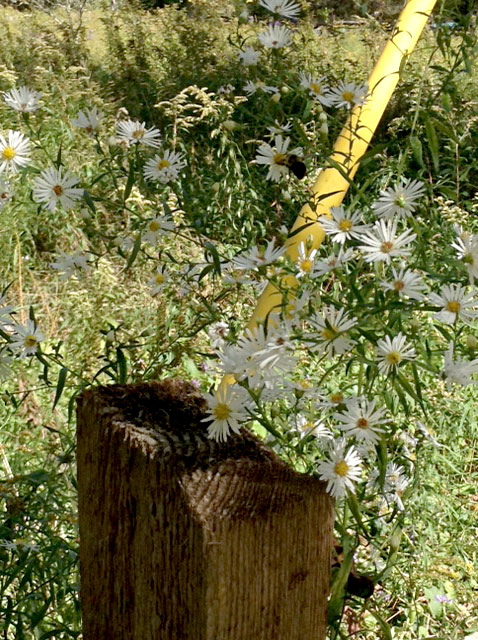 |
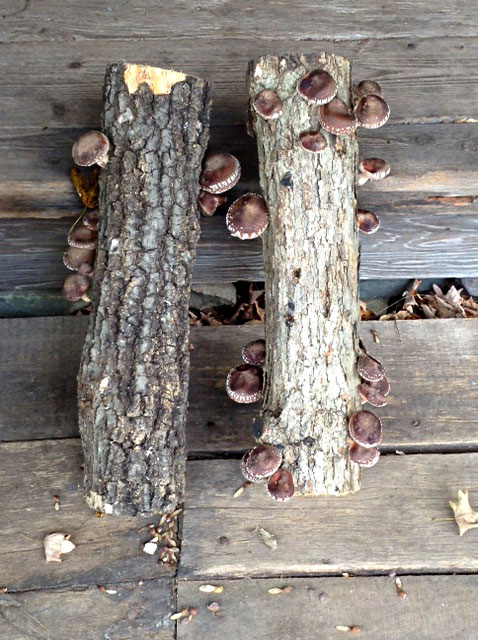 |
| Astors flourish as a pollinator habitat. | Mushrooms find fertile "ground" in inoculated logs. |
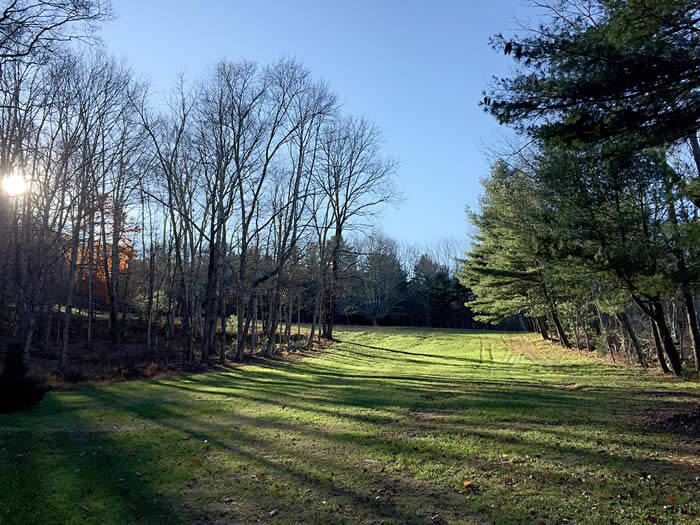 |
| Timber Hill Farm has been protected under a conservation easement since 1999. |
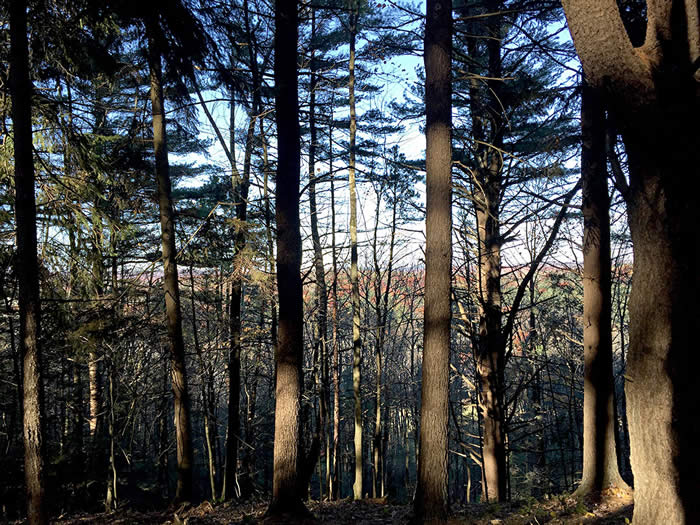 |
|
| Pine and spruce plantings on the ridge and down the steep slopes promote groundwater recharge and prevent erosion. |
Comments from other visitors:
Be the first to comment!
Share your experiences of this property -- what you saw, how you liked it:

